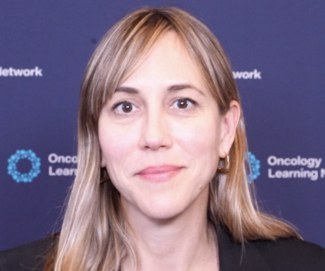Avelumab Following Long-Course Chemoradiotherapy Demonstrates Clinical Promise Among Patients With Locally Advanced, Resectable Rectal Cancer
According to results from the phase 2 Ave-Rec trial, avelumab following long-course chemoradiotherapy demonstrated clinical promise among patients with locally advanced, resectable rectal cancer.
“Long-course chemoradiotherapy for locally advanced rectal cancer achieves a pathologic complete response (pCR) in approximately 10% to 30% of cases,” stated Michael Michael, MD, Peter MacCallum Cancer Centre, Melbourne, Australia, and coauthors. “Inhibition of PD-L1 may augment the immunostimulatory response.”
In this single-arm trial, researchers enrolled 37 patients with stage T3b to 4/N1 to 2/M0 locally advanced rectal cancer within 12 cm of the anal verge. Patients underwent 50.4 Gy of long-course chemoradiotherapy plus 5-fluorouracil or capecitabine followed by 4 cycles of 10 mg/kg of avelumab once every 2 weeks (n = 33). Surgical resection was performed at least 10 to 12 weeks following completion of long-course chemoradiotherapy (n = 32). Researchers collected tumor biopsy and ctDNA data before long-course chemoradiotherapy, before administration of avelumab, and at the time of surgical resection. The primary end point was pCR. Key secondary end points included imaging response and toxicity. Exploratory end points included estimated time to progression, distant relapse-free survival (dRFS), and disease-free survival (DFS).
At analysis, the ORR by pelvic MRI was 48%. There were 10 complete metabolic responses and 18 parietal metabolic responses as assessed by 2-[¹⁸F] fluoro-2-deoxy-D-glucose PET. Regression score of 0 was observed in 19% of patients and regression score of 1 was observed in 16% of patients. Major pathologic response was observed in 34% of patients. Tumors with greater PD-L1 expression were correlated with better pCR and tumor regression. Tumoroid analysis revealed that instant cellular machinery for PD-1 or HLA class-1 expression was modulated by IFNγ. No grade 3 immune-related adverse events were observed. At a median follow-up of 3.1 years, the estimated time to progression was 82%, dRFS was 80%, and DFS was 80%.
“The Ave-Rec phase II study demonstrated that avelumab after [long-course chemoradiotherapy] is deliverable and tolerable, with significant imaging responses and a major pathologic response rate,” concluded Dr Michael et al. “The addition of immune checkpoint inhibitors warrants further evaluation in patients with [locally advanced rectal cancer].”
Source:
Michael M, Wong R, Gill S, et al. The Ave–Rec trial: Phase II trial of PDL1/PD1 blockade with avelumab after chemoradiotherapy for locally advanced resectable T3B-4/N1-2 rectal cancer. Clin Cancer Res. Published online: July 11, 2025. doi: 1078-0432.CCR-25-0705














